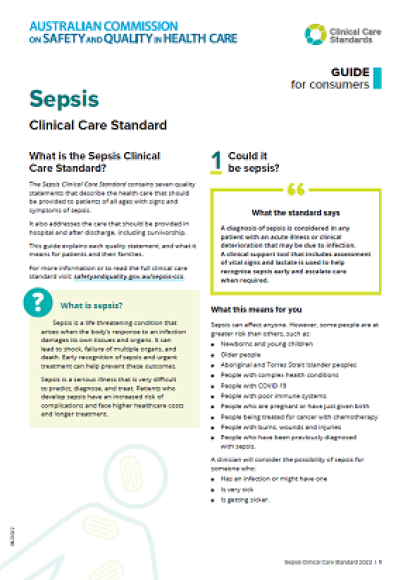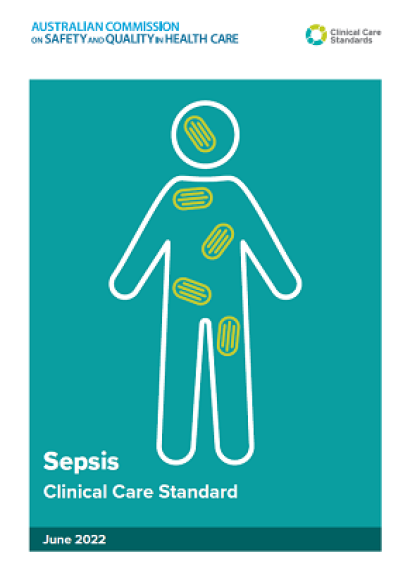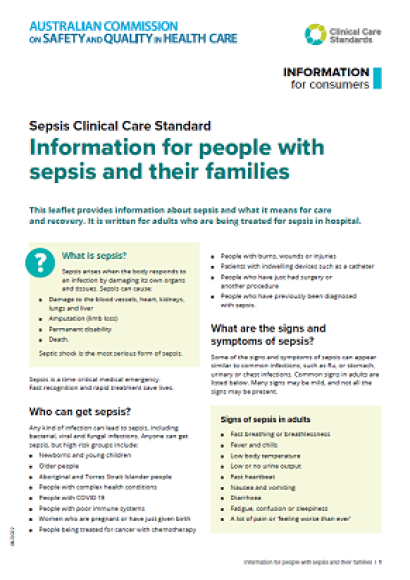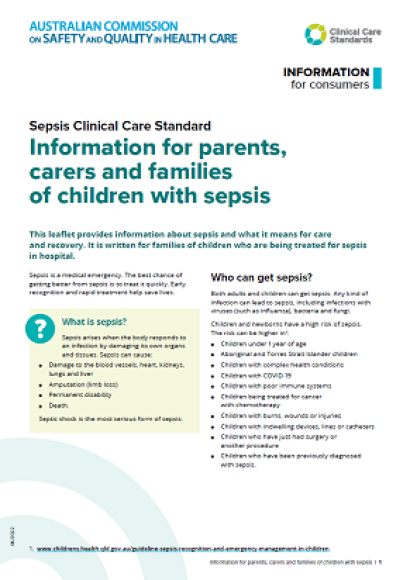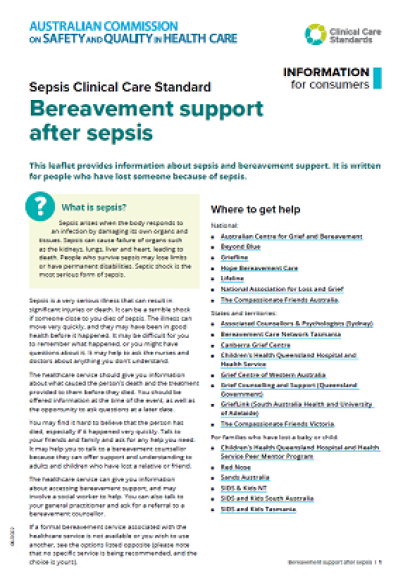Information for consumers - Sepsis Clinical Care Standard
The Sepsis Clinical Care Standard describes the health care that should be provided to patients with signs and symptoms of sepsis. It also addresses the care that should be provided in hospital and after discharge, including survivorship.
What is Sepsis?
Sepsis is a life-threatening condition that arises when the body’s response to an infection damages its own tissues and organs. It can lead to septic shock, failure of multiple organs, and death. Early recognition of sepsis and urgent treatment can save lives and prevent disability.
Sepsis is a serious illness that is very difficult to predict, diagnose, and treat. People who survive sepsis have an increased risk of complications and face higher healthcare costs and longer treatment.
It is important to know the signs of sepsis and if you are concerned, ask "Could it be sepsis?”
What the standard means for you
The standard contains seven quality statements that describe the recommended care. You can use the information below to understand what the standard says and what this means for you.
Quality statements
Useful resources
Support services such as the Australian Sepsis Network provide information and assistance to people with sepsis and their families at all stages of treatment and recovery.
The following resources have been developed to support the Sepsis Clinical Care Standard and to provide information for people affected by sepsis and their families.
-
2022Fact sheet
The Sepsis Clinical Care Standard contains seven quality statements that describe the health care that should be provided to patients of all ages with signs and symptoms of sepsis. It also addresses the care that should be provided in hospital and after discharge, including survivorship. This guide explains what each quality statement from the Clinical Care Standard means for patients and their families.
-
2022Standard
The Sepsis Clinical Care Standard contains seven quality statements and a set of indicators to ensure sepsis is recognised early and patients receive coordinated, best-practice care to reduce the risk of death or ongoing morbidity.
-
2022Fact sheet
This leaflet provides information about sepsis and what it means for care and recovery. It is written for adults who are being treated for sepsis in hospital.
-
Information for parents, carers and families of children with sepsis - Sepsis Clinical Care Standard
2022Fact sheetThis leaflet provides information about sepsis and what it means for care and recovery. It is written for families of children who are being treated for sepsis in hospital.
-
2022Fact sheet
This leaflet provides information on sepsis and bereavement support and is written for people who have lost someone because of sepsis.

